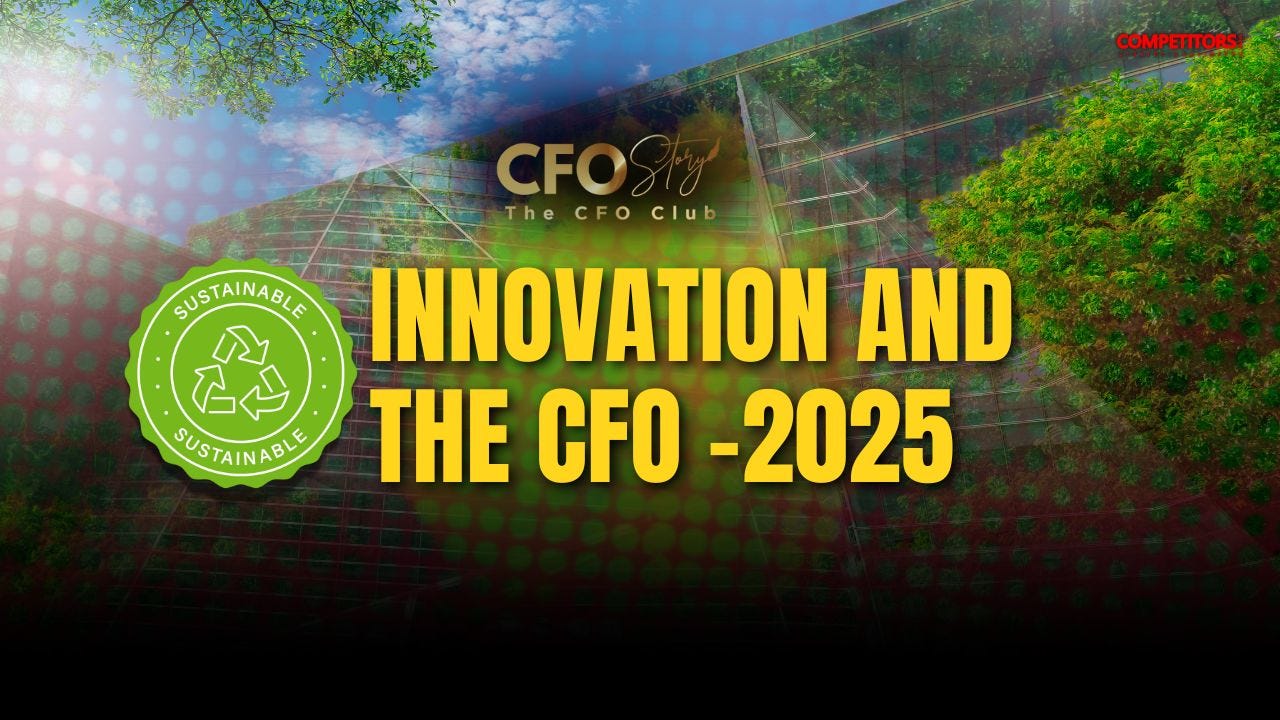In an era defined by rapid technological advancements, climate imperatives, and evolving consumer expectations, the role of the Chief Financial Officer (CFO) is undergoing a paradigm shift. No longer confined to financial stewardship, CFOs are now emerging as the architects of sustainable innovation, steering their organizations toward not just profitability, but long-term resilience and value creation. As we enter 2025, this evolution has become both a strategic necessity and a competitive advantage for IT multinationals headquartered in India and beyond.
From Cost Custodian to Strategic Innovator
Traditionally, CFOs have been perceived as the custodians of cost efficiency, focusing on risk mitigation and regulatory compliance. However, the transformative landscape of 2025 demands a broader outlook. As businesses face mounting pressure to align with Environmental, Social, and Governance (ESG) principles, CFOs are uniquely positioned to champion sustainable practices by integrating them into the financial DNA of their enterprises.
This shift is driven by three critical forces:
The Sustainability Mandate: Investors and stakeholders increasingly demand transparency and accountability regarding sustainability efforts. CFOs must ensure that green investments are not only tracked but also yield measurable returns.
Technology Integration: Emerging technologies, such as artificial intelligence, blockchain, and advanced data analytics, enable CFOs to forecast and model the impact of sustainability initiatives in real time, aligning innovation with long-term financial goals.
Evolving Consumer Expectations: With conscious consumers driving market trends, companies that embed sustainability into their operations and products unlock new revenue streams and foster deeper customer loyalty.
Key Levers for Driving Sustainable Innovation
Capital Allocation for Green Initiatives: CFOs can spearhead sustainable transformation by prioritizing capital for green projects, from renewable energy adoption to carbon-neutral infrastructure. Allocating resources toward circular economy models and sustainable supply chains not only mitigates risk but future-proofs the organization against regulatory changes.
Embedding ESG Metrics into Financial Planning: By embedding ESG metrics into budgeting and forecasting, CFOs provide a quantitative foundation for sustainability initiatives. This integration allows for clear performance tracking, enabling businesses to align their growth trajectory with environmental and social impact.
Driving Cross-Functional Collaboration: Sustainability cannot exist in silos. As CFOs cultivate relationships across departments—from R&D to operations—they unlock synergies that foster innovation. By aligning diverse teams around common ESG goals, CFOs accelerate the path from ideation to execution.
Harnessing Technology for Transparency and Efficiency: Leveraging AI-driven insights, CFOs can simulate the financial and environmental impacts of various strategic decisions, offering the C-suite a holistic view of the organization's sustainability roadmap. Blockchain, for instance, can enhance supply chain transparency, ensuring ethical sourcing and reducing operational inefficiencies.
Stakeholder Engagement and Reporting: Transparent communication of sustainability efforts builds trust and credibility among investors and consumers. CFOs play a crucial role in crafting compelling ESG narratives, ensuring alignment between financial disclosures and sustainability reports.
Consider an Indian IT MNC that integrates sustainability into its core operations. By investing in green data centers powered by renewable energy, the company reduces its carbon footprint while lowering operational costs. The CFO, through innovative financing models, facilitates this transition by issuing green bonds, simultaneously attracting ESG-focused investors. This dual focus on profitability and sustainability not only enhances shareholder value but positions the company as a leader in ethical innovation.
The Road Ahead
As we navigate the complexities of 2025, CFOs must embrace their role as drivers of sustainable innovation. The future belongs to those who recognize that profitability and purpose are not mutually exclusive—they are complementary forces that, when harnessed, create enduring value. By embedding sustainability at the core of financial strategy, CFOs become pivotal agents of change, ensuring their organizations thrive in an increasingly conscious and competitive global market.
In this transformative journey, the CFO is not just the gatekeeper of financial health but the beacon guiding enterprises toward a sustainable, prosperous future.


